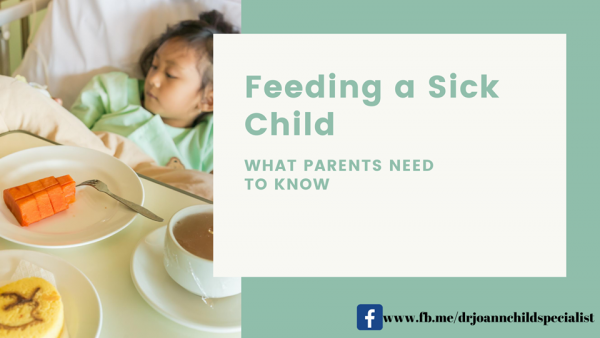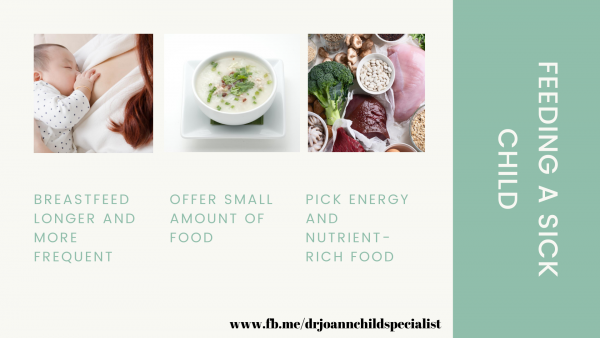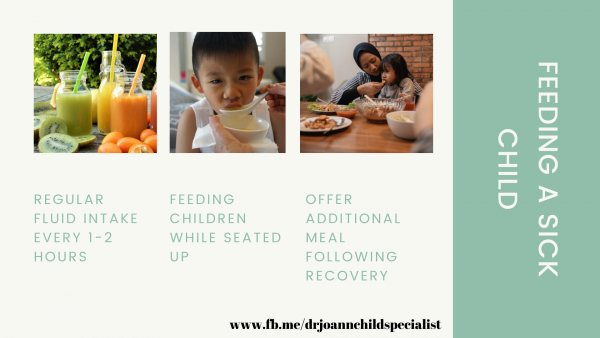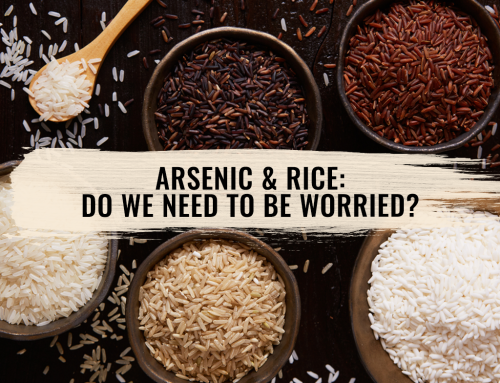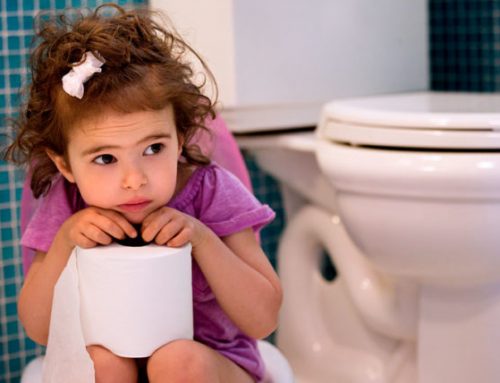Feeding a sick child, what parents need to know
Have you ever heard of anyone mentioning that you should avoid giving children rice when they are sick? People from each ethnicity generally retained their ancestors’ cultural customs including feeding practices when a child is unwell. First and foremost, let’s understand what happens to the body when someone is sick.
When a person is sick, the immune system gets activated. As a result, white blood cells and antibodies surge in production to eliminate the unwanted germ in the body. Besides that, the immune system also releases chemicals called cytokines, making a person feel tired and have less appetite. This is a signal for the body to rest so that energy can be channeled to fight the infection. However, it is essential to ensure that the body receives adequate nutrition and calories to boost the immune system during this period.
A study among infants and children in South Asian countries showed that traditional beliefs often guide the feeding practices when a child is sick. For example, parents may avoid particular ‘hot’ or ‘cold’ food or feed ‘special food’ meant for sick children. Restriction of the child’s diet will inevitably result in the child receiving less nutritious food, thus prolonging recovery.
How should you feed your child when they are unwell?
✔️ In a child who is breastfeeding, breastfeed for a longer duration, and more frequent.
✔️ Offer small amounts of food regularly.
Children may find it easier to eat soft food like porridge, soup, or mashed fruits.
✔️ Include energy and nutrient-rich foods in the meal, for example, meat, poultry, fish, and eggs.
✔️ Give children the food of their choice.
However, the request has to be reasonable. For example, if your child has a sore throat or tonsil infection, eating fried or spicy food may irritate the throat further.
✔️ Avoid greasy or fried food which are harder to digest.
✔️ Encourage your child to take fluids every 1-2 hours.
A variety of fluids should be offered, including water, milk, coconut juice, fresh fruit juice, soup, or watery porridge.
Avoid carbonated or cordial drinks if your child has diarrhea, as the excess of sugar can worsen the disease.
✔️ Children should always be fed sitting up, especially if the child has vomiting to avoid choking.
✔️ Please encourage your child to eat but never force them or they might choke or vomit.
✔️ Offer an additional substantial meal following recovery for at least two weeks.
This extra feed is to compensate for the lack of food intake during the illness. Even a short bout of sickness can cause a child’s growth to falter.
Hence, the answer to whether rice can be fed to children during an illness is yes, as long as they are willing to eat it. Have you heard about any other food quirks? ?
References:
1. Kajali Paintal and Victor M. Aguayo : Feeding practices for infants and young children during and after common illness. Evidence from South Asia – Matern Child Nutr. 2016 May; 12(Suppl 1): 39–71
2. Feeding sick people : The Family Nutrition Guidehttp://www.fao.org/3/y5740e/y5740e0d.htm
3. Reasons you don’t feel hungry www.webmd.com
Related article:
https://drjoannchildspecialist.com/death-from-choking-is-preventable/
INTERESTED IN PARENTING ARTICLES?
We have the right articles just for you.
“There is no such thing as a perfect parent. So just be a real one.” – Sue Atkins


